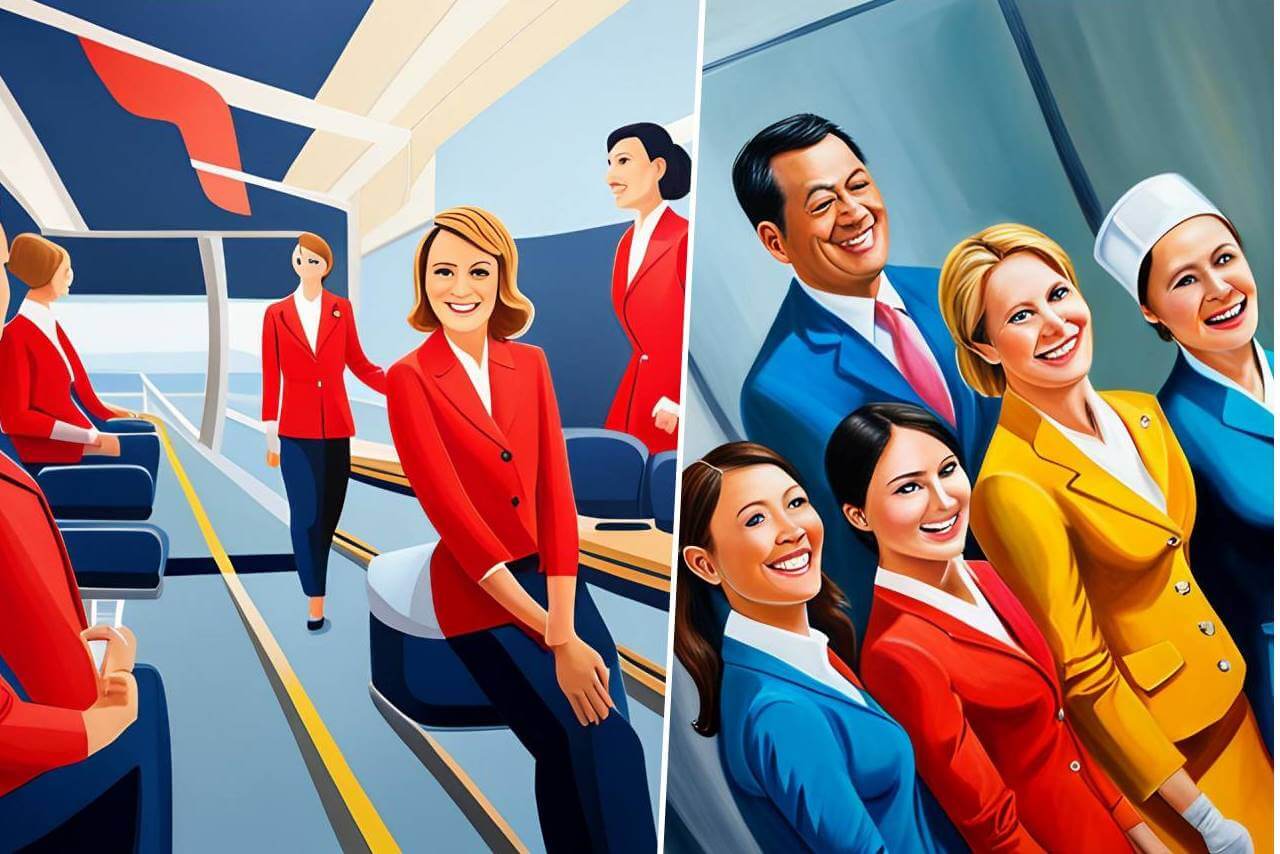As the airline industry continues to grow and evolve, the demand for qualified flight attendants is at an all-time high. A flight attendant school provides individuals with the necessary training and education needed to begin a successful career as a cabin crew member. In this guide, we’ll explore everything you need to know about attending flight attendant school, including the curriculum, requirements, and job placement assistance.
At its core, the role of a flight attendant is to ensure the safety and comfort of passengers aboard commercial flights. It’s a critical and rewarding job that requires a unique set of skills and knowledge. Flight attendant schools are designed to provide individuals with the training and education needed to excel in this role.
We’ll explore the various aspects of flight attendant schools, including what it is, how it works, and what you can expect to learn. We’ll also cover the different types of flight attendant training programs available, what certification and licensing requirements you’ll need to fulfill, and what kind of job placement assistance is available.
Contents
- What is a flight attendant school?
- 8 Benefits of a Flight Attendant School
- Requirements for Enrollment
- Curriculum and Courses
- Flight Attendant Training Programs
- Certification and Licensing
- Job Placement Assistance
- Financial Aid and Scholarships
- Video: Trying a Flight Attendant Training Academy
- Frequently Asked Questions
- 1. How long does flight attendant school take?
- 2. Does a flight attendant school guarantee employment?
- 3. What are the requirements for becoming a flight attendant?
- 4. How much does flight attendant school cost?
- 5. What kind of job prospects are available after completing flight attendant school?
- 6. What kind of certification and licensing is required to become a flight attendant?
- 7. Are there any financial aid or scholarships available for flight attendant schools?
- 8. What is the job outlook for flight attendants?
- 9 What type of qualifications do flight attendants need?
- 10. What safety measures do flight attendants need to follow?
- Conclusion

What is a flight attendant school?
Flight attendant schools are designed to provide students with the skills and knowledge needed to become successful flight attendants. These programs typically combine classroom instruction with hands-on training to prepare students for the real-world challenges of the job. Students can expect to learn about a variety of topics, including safety procedures, customer service, and emergency protocol.
Most flight attendant schools are designed to be completed in a relatively short period of time, typically ranging from several weeks to several months, depending on the program. Some programs may even offer accelerated training options that can be completed in just a few weeks.
8 Benefits of a Flight Attendant School
Attending a flight attendant school is a great way to gain the knowledge and skills needed to pursue a successful career as a flight attendant. From classroom instruction to hands-on training, these programs provide students with an invaluable resource for launching their careers. Here are some of the benefits one can get:
- Comprehensive Curriculum: Flight attendant schools offer a comprehensive curriculum that covers safety procedures, customer service, in-flight food and beverage service, aircraft familiarization and navigation, cultural sensitivity and diversity training, and first aid and CPR training. The course content is designed to prepare students for all aspects of their job as a flight attendant.
- Hands-on Training: Flight attendant schools combine classroom instruction with hands-on training. This provides students with an opportunity to practice their skills before they start working in the aviation industry. They learn how to work in an aircraft, handle emergency situations, and provide excellent customer service to passengers.
- Professional Development: Flight attendant schools provide students with professional development opportunities. They learn communication skills, leadership, and teamwork that are valuable not only for their career as a flight attendant but also for their personal and professional development.
- Job Placement Assistance: The majority of flight attendant schools offer job placement assistance. This is a great benefit for students who want to start their career as soon as possible after completing their training. Flight attendant schools usually have partnerships with airlines and other aviation companies, which makes it easier for graduates to find employment.
- Industry Connections: Flight attendant schools have strong connections within the aviation industry. These connections often lead to guest speakers from the industry who give lectures and share their experiences with students. This gives students a better understanding of the industry and what is required to succeed.
- Increased Earning Potential: Flight attendant schools provide students with the necessary training and certification needed to work in the aviation industry. This leads to increased earning potential and career growth. As graduates gain experience, they can progress to higher positions with better pay and benefits.
- Travel Opportunities: Flight attendants get to travel to different parts of the world as part of their job. Flight attendant schools prepare students for this aspect of the job by teaching them about different cultures and customs. They also learn how to interact with passengers from different backgrounds and provide excellent service.
- Fulfilling Career: Flight attendant schools provide students with the necessary training to have a fulfilling career that is both challenging and rewarding. Graduates get to work in a dynamic environment, meet new people, and travel the world while doing what they love.
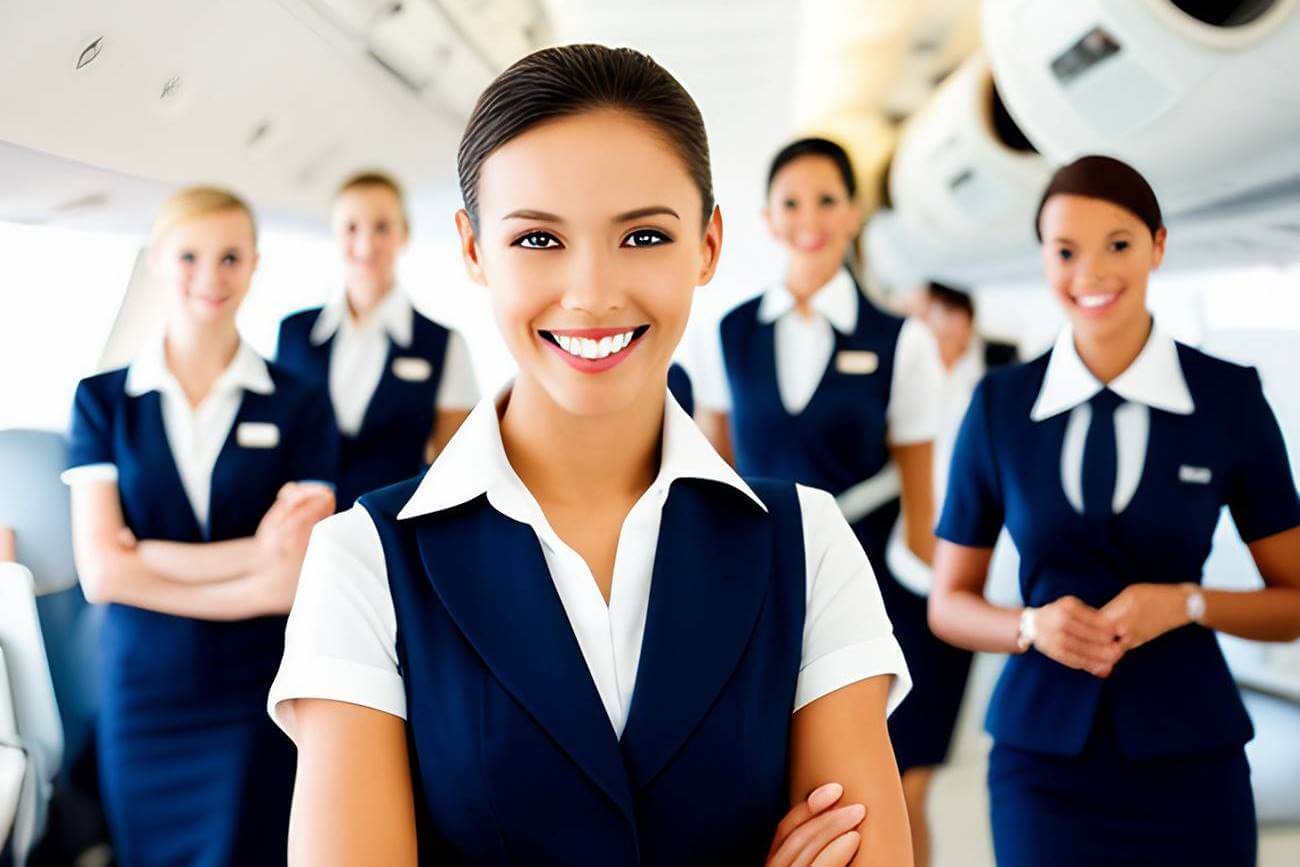

Requirements for Enrollment
Each flight attendant school may have different requirements for admission, but most will require that students meet certain criteria. Common requirements for enrollment in flight attendant school include:
- High school diploma or equivalent
- Minimum age of 18 years
- Good physical health and ability to pass a medical exam
- Ability to pass a criminal background check
- Proficiency in English language
Apart from the requirements mentioned above, flight attendant schools may also have additional requirements for admission. For example, some programs may require that students have prior customer service experience, while others may require that students are able to swim for safety reasons.
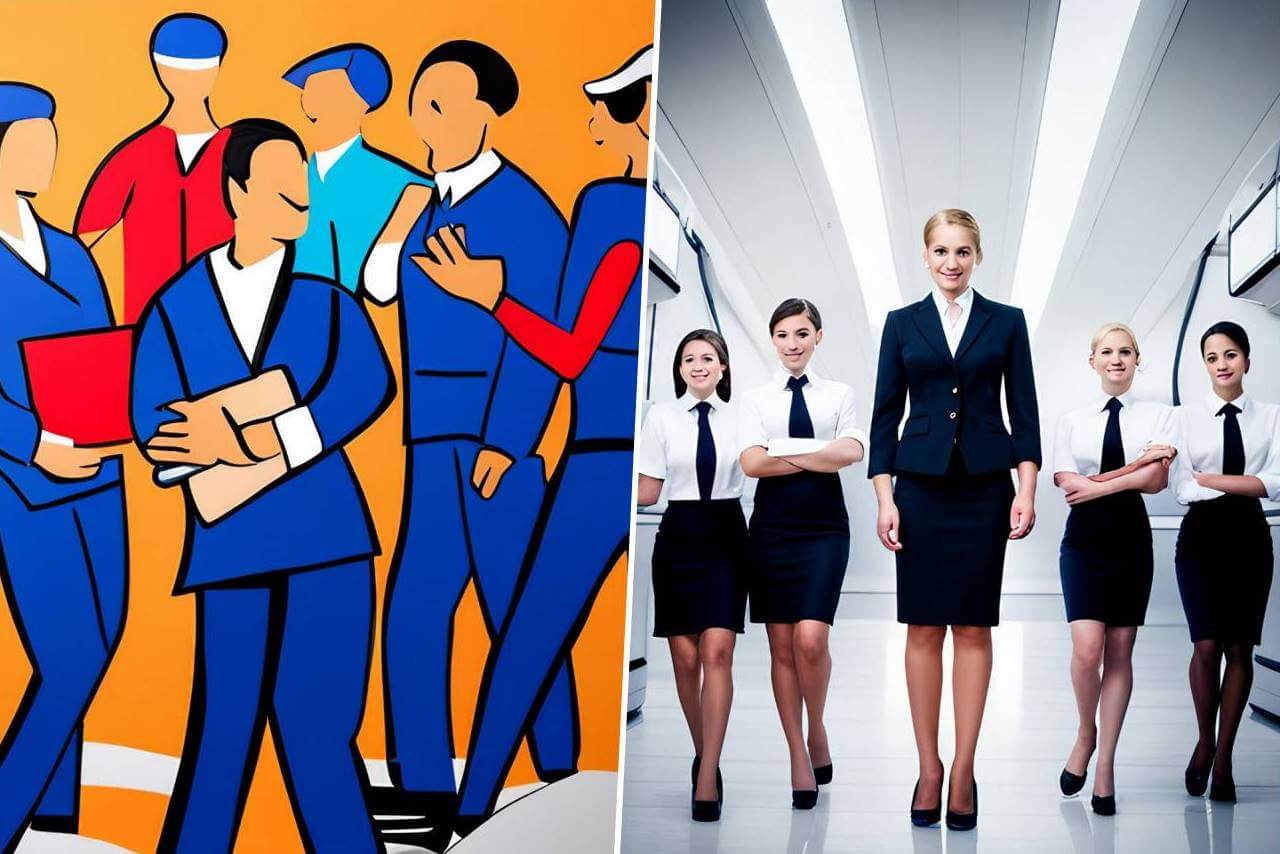
Curriculum and Courses
Flight attendant school curriculum can vary depending on the school and program. However, most programs will cover a variety of topics related to the job of a flight attendant. Here are some common topics covered in flight attendant courses:
- Safety procedures and emergency protocol: Flight attendants are responsible for ensuring the safety of passengers in the event of an emergency. Flight attendant courses will cover topics such as emergency exits, first aid, and evacuation procedures.
- Customer service and communication skills: Flight attendants are often the face of the airline, and they are responsible for providing exceptional customer service to passengers. Flight attendant courses will cover topics such as effective communication, conflict resolution, and cultural sensitivity.
- In-flight food and beverage service: Flight attendants are responsible for serving food and beverages to passengers during flights. Flight attendant courses will cover topics such as food handling, meal service, and bar service.
- Aircraft familiarization and navigation: Flight attendants must be familiar with the aircraft they are working on and able to navigate through it efficiently. Flight attendant courses will cover topics such as aircraft systems, cabin layout, and door operation.
- Cultural sensitivity and diversity training: Flight attendants work with passengers from all over the world, and it’s critical that they are able to provide excellent service to everyone, regardless of their background. Flight attendant courses will cover topics such as cultural awareness, diversity training, and language skills.
- First aid and CPR training: Flight attendants must be prepared to respond to medical emergencies that may arise during a flight. Flight attendant courses will cover topics such as basic first aid, CPR, and AED training.
Flight Attendant Training Programs
It’s good to enroll in one of the best FA training schools out there that offer various types of training programs available for aspiring flight attendants. Some programs are offered by airlines, while others are provided by independent schools. Some common types of flight attendant training programs include:
- Airline-sponsored training programs: Airlines will often provide their own training programs for new hires. These programs can vary in length and intensity depending on the airline, but they provide a direct path to employment.
- Independent training schools: These schools provide comprehensive training programs that cover all aspects of flight attendant training. Graduates of these programs are not guaranteed employment with any particular airline, but they will have the necessary skills and knowledge to begin their careers.
- Online training programs: Online training programs are becoming more popular, offering flexibility and convenience for those who cannot attend traditional classes in person.
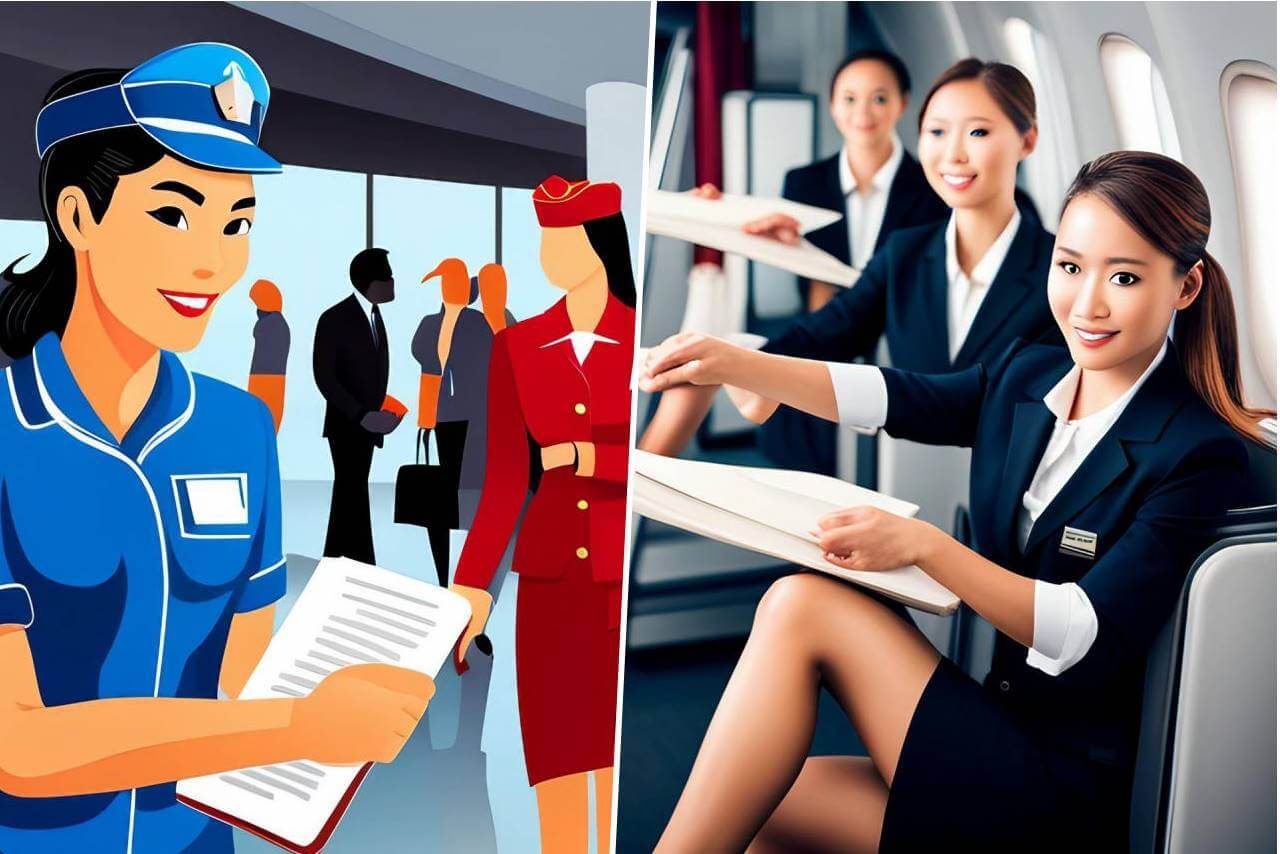
Certification and Licensing
In addition to completing flight attendant school, aspiring flight attendants will need to obtain certification and licensing before they can work for an airline. The Federal Aviation Administration (FAA) requires that all flight attendants be certified and licensed before they can work on commercial flights. To obtain certification, flight attendants must pass an FAA-approved training program and demonstrate proficiency in all required areas.
The FAA requires that all flight attendants complete a minimum of 21 hours of training, which includes both classroom instruction and hands-on training. Flight attendants must also complete ongoing training to maintain their certification and stay current with any changes in regulations or procedures.
Job Placement Assistance
Many flight attendant schools offer job placement assistance to graduates. This may take the form of career counseling, resume-building workshops, and networking opportunities. Some schools may also have partnerships with airlines, providing students with a direct path to employment upon graduation.
It’s important to note that while flight attendant school can provide an excellent foundation for a career in the airline industry, it does not guarantee employment. Competition for flight attendant positions can be fierce, and many airlines receive hundreds or even thousands of applications for each open position.
Financial Aid and Scholarships
Flight attendant school can be expensive, but there are options available for financial aid and scholarships. Some flight attendant schools offer their own scholarships or financial aid programs, while others may assist students in finding outside funding sources.
It’s important to research the different financial aid options available when researching flight attendant schools. Some schools may offer payment plans or other financing options to help make tuition more manageable.
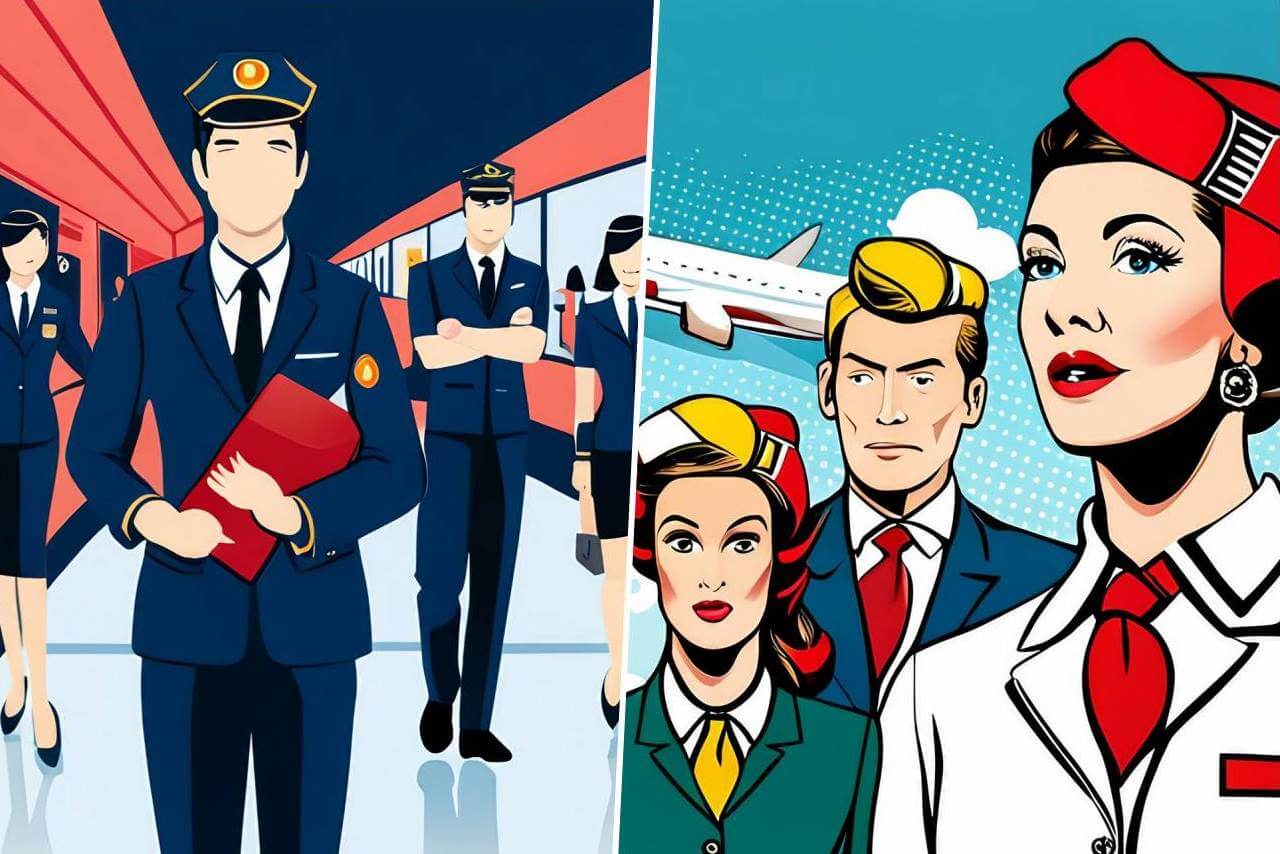

Video: Trying a Flight Attendant Training Academy
Check out this video from Michelle Khare on YouTube as she shares her experience trying out flight attendant training in an academy school for cabin crew.
Watch as she learns the basics of safety and service, role-plays with her classmates, practices emergency scenarios in a simulator, and more!
Frequently Asked Questions
1. How long does flight attendant school take?
The length of flight attendant school can vary depending on the program, but most programs can be completed in several weeks to several months.
2. Does a flight attendant school guarantee employment?
No, flight attendant school does not guarantee employment. Most schools offer job placement assistance and career counseling, but ultimately it is up to the individual to find a position with an airline or other employer.
3. What are the requirements for becoming a flight attendant?
The requirements for becoming a flight attendant vary by airline, but generally include completing an FAA-approved training program, obtaining certification and licensing from the FAA, and meeting any age or physical fitness requirements set forth by the airline. Additionally, many airlines require their cabin crew members to be proficient in one or more languages.
4. How much does flight attendant school cost?
The cost of flight attendant school can vary depending on the program and location. Some programs may cost several thousand dollars, while others may be less expensive.
5. What kind of job prospects are available after completing flight attendant school?
While completion of flight attendant school is an excellent foundation for a career in the airline industry, it does not guarantee employment. Competition for flight attendant positions can be fierce, and many airlines receive hundreds or even thousands of applications for each open position.
6. What kind of certification and licensing is required to become a flight attendant?
The FAA requires that all flight attendants be certified and licensed before they can work on commercial flights. To obtain certification, flight attendants must pass an FAA-approved training program and demonstrate proficiency in all required areas.
7. Are there any financial aid or scholarships available for flight attendant schools?
Yes, some flight attendant schools offer their own scholarships or financial aid programs, while others may assist students in finding outside funding sources. It’s important to research the different financial aid options available when researching flight attendant schools. Some schools may offer payment plans or other financing options to help make tuition more manageable.
8. What is the job outlook for flight attendants?
The job outlook for flight attendants is projected to remain positive in the coming years. The Bureau of Labor Statistics predicts that the employment of flight attendants will increase by 7% from 2019-2029, faster than the average for all occupations. This growth may be attributed to an increased demand for air travel domestically and abroad. Additionally, as airlines continue to expand their global reach, there should be more opportunities for qualified flight attendants.
9 What type of qualifications do flight attendants need?
To qualify for a flight attendant position, you must be at least 18 years old and possess a high school diploma or equivalent. In some cases, airlines may also require additional certifications such as a first aid certification or basic knowledge of CPR and AEDs. Excellent customer service skills are also necessary for success in this field. Additionally, many airlines prefer applicants who have experience working in the hospitality industry or other customer-facing roles. Additionally, most employers will conduct background checks before hiring new employees which could include criminal record checks and drug screenings. Candidates should be prepared to submit to these processes if required by an employer.
10. What safety measures do flight attendants need to follow?
Flight attendants are responsible for ensuring the safety and security of passengers throughout every flight. They must closely follow all safety procedures and protocols, as outlined by their airline or employer. They may be required to regularly attend safety training sessions in order to stay up to date on any new procedures or regulations.
Conclusion
Attending flight attendant school is an excellent way to begin a career in the airline industry. With comprehensive training programs and job placement assistance, students can gain the skills and knowledge needed to become successful flight attendants. While it’s important to be aware of the competitive nature of the industry, completing flight attendant school can provide an excellent foundation for a rewarding career.
